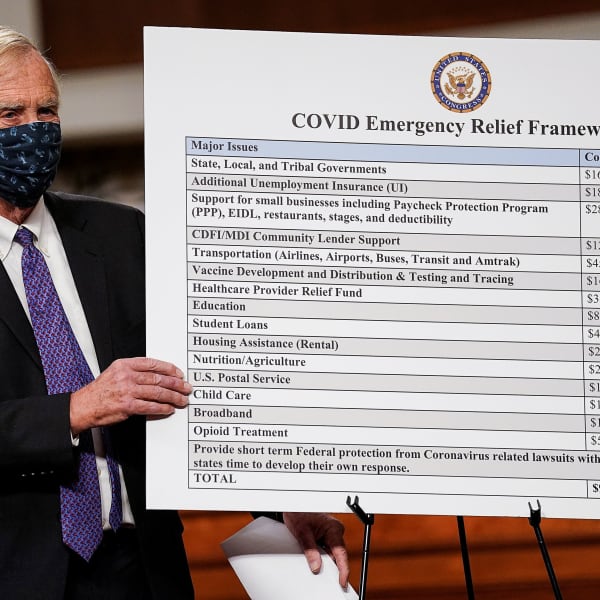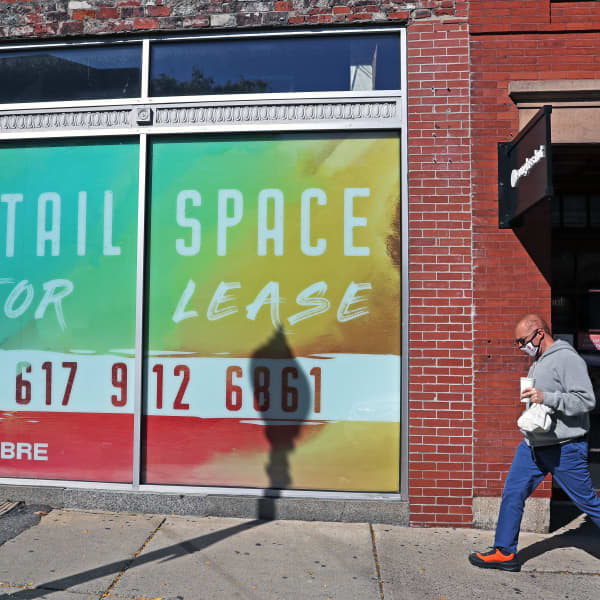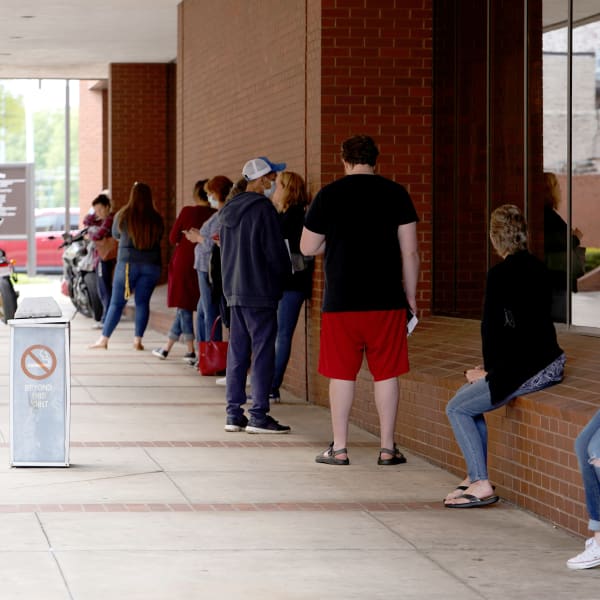When it comes to dealing with the threat posed by Amazon, small businesses don't have to be the next David hoping to outperform Goliath — if you can't beat the giant, try joining it.
Why? Here's one recently revealed reason: Small-business owners who say that Amazon helps drive customers to their business have more confidence than those who say their business competes with Amazon for customers, according to a new CNBC/SurveyMonkey Small Business Survey. It's not by a wide margin — 59 percent vs. 56 percent, respectively. And it's also still a relatively small subset of business owners — almost equal proportions of entrepreneurs say their business competes with Amazon for customers (8 percent) or Amazon helps drive customers to their business (7 percent).
Among small-business owners, there's still a general perception about Amazon that tilts to the negative, even if they say it doesn't flow through to their actual business experience. Forty-two percent of small-business owners say Amazon is bad for small businesses, according to the survey, but a large majority (83 percent) say their business is not affected by Amazon.
But there is a notable difference between businesses that consider Amazon a competitor and those that consider it a sales driver when it comes to revenue expectations over the next 12 months.
In the next 12 months, do you expect your business’s revenue to increase, stay the same, or decrease?
| Revenue expectations next 12 months | My business competes with Amazon for customers | My business is not affected by Amazon | Amazon helps drive customers to my business |
|---|---|---|---|
| Increase | 56% | 50% | 72% |
| Stay the same | 30% | 39% | 20% |
| Decrease | 13% | 10% | 8% |
Source: CNBC | SurveyMonkey Small Business Survey, Q3
Some businesses may be missing opportunities to sell through Amazon. Amazon's Marketplace — which connects 2 million merchants with 300 million shoppers — has grown to account for more than half of all goods sold on the site.
Becoming an Amazon seller and featuring products or service directly on Amazon can not only lead to increased sales and business confidence but also get around another issue small-business owners struggle with — their web presence. CNBC/SurveyMonkey Small Business Survey data shows that only about half of all small businesses have a website. The majority of small businesses across the nation continue to rely on word of mouth to communicate with new and existing customers, the survey has found.
More from the CNBC/SurveyMonkey Small Business Survey:
"If you can do it, have a landing page or landing site," said Gabriel Shaoolian, founder and CEO of digital marketing company Blue Fountain Media. An online presence can make you visible to and lay out an overview of your company and values. "But in terms of the e-commerce function, before you go off and do it on your own, have an Amazon website."
Here are some tips for bringing Amazon' into your business, and your business onto its platform:
1. Understand the basic fees and options before anything else.
To become a seller on Amazon, businesses must first determine how much they'll sell, whether it be more than 40 items a month (professional account) or fewer (individual account), according to Amazon. Professional accounts charge a monthly subscription fee of $39.99 and include referral and selling fees, while individual accounts will see Amazon charge $0.99 per sale. Businesses can also use Fulfillment by Amazon to handle shipping, other logistics and even returns.
2. Consider making more of Amazon's might if you are in launch mode.
More ambitious start-ups looking to launch a brand-new product can also try applying for Amazon Launchpad, which simplifies the development, marketing and retail for new products from start-ups. It includes help in managing inventories and fulfilling orders.
The results of using Amazon can sometimes be phenomenal: South Carolina-based ornament company Palmetto Engraving received 18,000 orders from Amazon after being featured on Amazon during a Black Friday sale, said Palmetto Engraving's vice president Dennis Solomon. Until then, their biggest spike in sales were 200 orders through online retailer Etsy.
Tuft & Needle, a mattress industry disruptor, began its operations entirely online and notched 100 million in sales in 2016, said Jeff Wells of Tuft & Needle. Wells is the vice president of Amazon Strategy at the mattress disruptor, a position dedicated exclusively to managing the company's approach to selling on Amazon. A full 25 percent of the company's sales are made through Amazon; the company, in fact, lumps together the remainder of online sales because of its comparative insignificance.
3. Be prepared to stand behind your product or service.
To stand out in a sea of competitors, it's critical to make a good product, Wells said. Paying for advertising on Amazon will help results show up higher and shouldn't be discounted. But the Amazon dynamic also means users can leave negative feedback that can sink aspiring brands.
Here's the thing: Companies can respond to it and mitigate it but ultimately can't control it.
"There aren't any tricks," Wells said. Instead, concentrate on having a good product in the first place. "It really comes down to spent time on the product first and spent time on the experience first, and everything else will follow."
Some retailers caution against pinning everything on Amazon. Palmetto Engraving continues to grow its brand using multiple storefronts on other websites, including direct sales and Etsy. "Why would I put all my eggs in one basket?" Solomon said.
4. Expect Amazon policy shifts.
Amazon recently drew ire from online merchants for revising its refund policy to allow buyers to return items automatically, without first consulting the seller. The decision — to more closely align independent sellers with Amazon's own customer policies — at least needs to be understood and weighed by businesses before establishing an Amazon selling relationship.
"We were able to acquire new customers who may not have found our products otherwise," said Brian Lim, CEO of iHeartRaves which generates $20 million a year in revenue from festival fashion sales. But Lim said Amazon is a double-edged sword. "We were able to improve our sales from a high traffic channel. The scale of Amazon's online presence is just massive. Of course … there is a price to pay. Marketplace fees deduct a percentage of each sale, so we have to make sure our margins make sense. There's also limited control in the marketplace, since Amazon wants the focus to be on the products, rather than the sellers."
Amazon also has suspension policies that independent sellers say are hasty, and costly. Consider the recent fate of a toothbrush parts seller who alleges Amazon cost him $200,000 after it suspended him based on an intellectual property claim from a fake law firm.
—By Mike Juang, special to CNBC.com
The CNBC/SurveyMonkey Small Business Survey is conducted quarterly using SurveyMonkey's online platform and based on its survey methodology. The third quarter survey was conducted August 10 - August 17.




